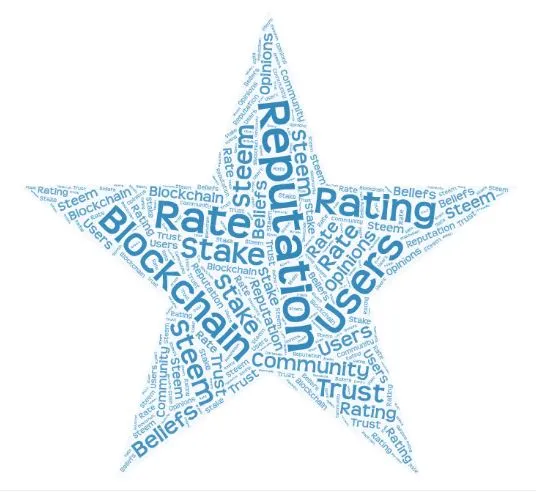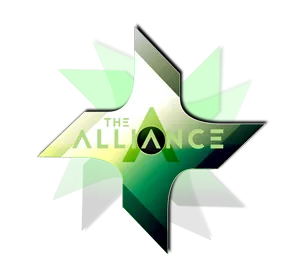
Dear Steemians,
I am going to ask upfront that you resteem this post if you agree with it or think it needs to be discussed more. My hopes is that it will spur some discussion which will lead to an SPS proposal or some other method for this (or some derivative of it)to be included in the next HF. Whether you agree or not, your comments are encouraged and appreciated.
I am coming to you today with a proposal for an account rating system. This proposal would not change the current "Reputation" algorithm, but does suggest a name change for the sake of clarity.
Background/Problem: The way that Steem distributes rewards is dependent on a community consensus of which posts deserve the rewards. This consensus is reached through the use of upvotes and downvotes. Downvotes, though a necessary aspect of the Steem blockchain, carry a very negative social connotation. This is compounded by the fact that downvotes have a direct affect on Reputation. Because the weight of a downvote is directly proportional to the downvoter's Steempower (SP), users with less SP are subject to malicious attacks on their social standing even though they may have generally favorable interactions on the blockchain.
A secondary problem under the current Reputation algorithm is that reputation can be, and often is, bought. Users have the ability to upvote themselves via their same account, paid bid bots, or through alternate accounts (alts). This is a privilege of stake, however, it adds ambiguity to the reputation system as accounts with generally unfavorable community interactions often show as having some of the highest Reputation scores in the community.
There have been numerous instances in which large sections of the community expressed a desire to eliminate downvoting. This is a present day issue (this article is being written in the midst of the #SteemHostileTakeover) and is a condition of @proxy.token's proposal for witness votes. These requests are often answered with the explanation that downvotes are used to provide consensus of reward pool distribution and are a necessary part of Steem's Proof of Brain concept.
Analysis: A Google search to define reputation pulls up the following definition: "the beliefs or opinions that are generally held about someone or something". Beliefs and opinions are an aspect of social interaction. Steem is a Delegated Proof of Stake (DPOS) system. In such a system, influential weight is given to those who hodl the token. Therefore, the current Reputation system falls in line with that overall concept. However, the term "reputation" is inappropriate because it doesn't have a strong mechanism for representing the general beliefs or opinions held about that account.
In order to build a system to represent general beliefs and opinions, we would have to seek a method which gathers input from the general population. General input relies on the input from all participants being weighted the same. To put it another way, no belief or opinion is more valid than another. Therefore, such a system could not include stake as a variable.
Reputation is dynamic. Unlike product reviews in a store like Amazon or seller reviews on Ebay, a social reputation is dynamic. A person can change their interaction and thereby change the opinion the general population shares about them. Any system aiming to capture general opinions and beliefs should take the dynamic aspect into account.
Solution: The problems of the current Reputation system can be largely mitigated through the implementation of an Account Rating System (ARS). Under the ARS, each member would have the opportunity to rate the interactions they have had with a particular account on a range of 1 to 5 stars. The account's RATING would be an average of all the RATEs that account has received within 180 days since it's last post. RATEs would expire after 180 days. An account would only be able to rate another account once every 180 days.
Concerns and Mitigations:
What would prevent using alternate accounts to bolster one's own RATING? This could be mitigated in several ways.
- First, because the RATEs expire, there would be an effort cost to update the rating after it expires.
- Second, an ARS blacklist would be developed of known alts or accounts known to be under the control of a different individual or entity. These accounts would not be allowed to RATE other accounts within the ARS.
- Third, in order to RATE an account as either 1 star or 5 stars, a reason would have to be provided. Automating such response would likely lead to placement on the ARS blacklist.
Having a Reputation score and an Account Rating could be confusing. we don't need two systems which do the same thing.
- The two systems do not do the same thing and could be complimentary to each other.
- Renaming "Reputation" to "Importance" could clear up the confusion. As stated before, the current Reputation system does not do a good job of capturing or communicating general beliefs or opinions about an account, but it does give a very good indication of the importance of the account. Stake and social status are both aspects of importance and Reputation is a pretty good indicator of both.
What benefits would such a system bring to Steem?
- The ARS will serve as another variable which decentralized applications (DAPPs) can use however they see fit.
- It can be used as a filter for joining a community.
- It could be used as a more effective means of controlling spam
- It would offer social protection (or remove social liability) to those targeted by a single high staked user.
- It would encourage good behavior and decentralized conflict resolution on the Steem blockchain
- It would give users an ability to course correct and improve themselves without having to depend on a large-staked user.
- It encourages users to stay on the chain, creating more users of Steem and adding to the currency's potential as a medium of exchange.
- In the future, who knows?
Conclusion
Steem is a unique blockchain in that it was built upon both the technical aspects of DPOS and the social aspect from day one. This creates a user base that is rather unique among cryptocurrencies. Implementing a rating system based on social aspects allows the blockchain another variable which more aptly represents the general beliefs and opinions about an account. A focus on this variable will lead to greater public acceptance of the necessity of downvotes for the purposes of consensus on payouts.
Thanks for reading. Please don't forget to comment.
P.S.
If you'd like to see my previous posts on how reputation works, click here or here.

=============================

=============================

Join the new Discord channel dedicated specifically to poetry
Block Chain Poets
Where poets support other poets.
